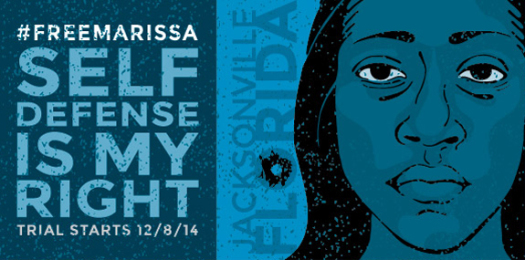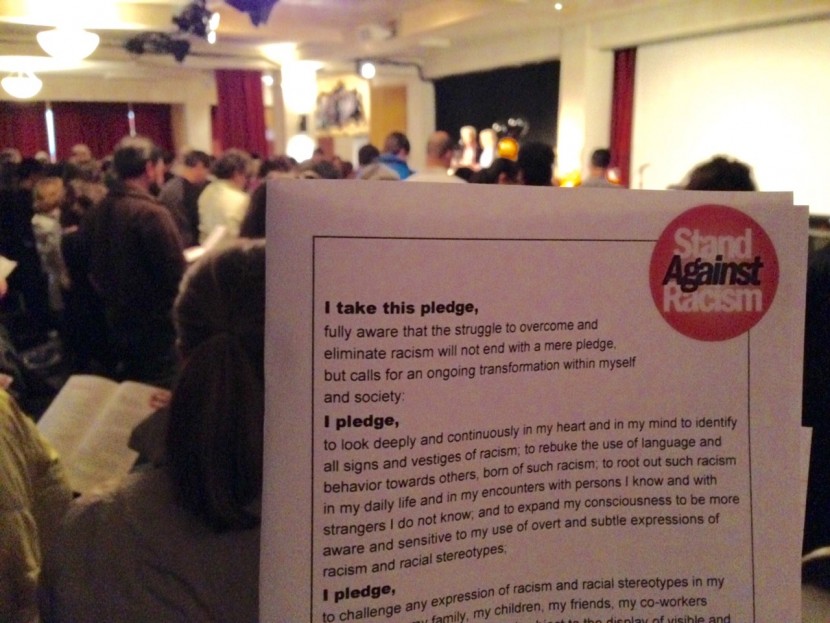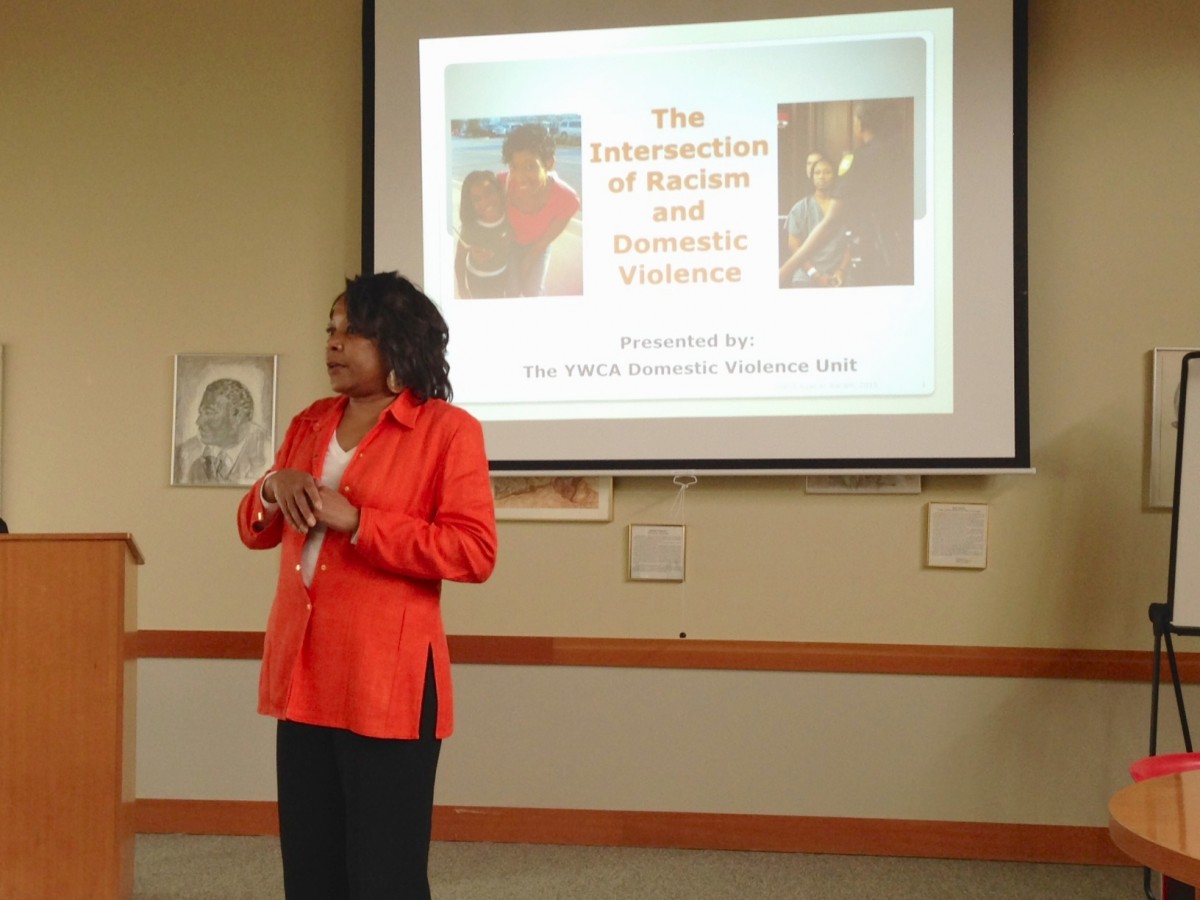Written by Denise Miller, Firesteel Advocacy Coordinator
The Stand Against Racism is an annual YWCA USA campaign to build community among people who work for racial justice, and to raise awareness about the negative impact of systemic racism. (Not sure what systemic racism is, or whether it’s really a problem? Race Forward has a great series of YouTube videos for you.)
YWCA chapters across the country hold Stand Against Racism events, and yesterday I attended one focused on the intersection of racism and domestic violence. I was particularly interested in this topic because, as we’ve reported many times on this blog, domestic violence is a leading cause of family homelessness. While domestic violence plagues people of all races and socio-economic classes, women of color are more likely than white women to be victims.
Last fall, Perry Firth examined this disparity in an excellent post about violence against women, writing,
These higher rates of violence can be linked to racism, sexism, poverty and unemployment, and distrust of the legal system. These rates should also be placed within a broader socio-historical context — one that continues to limit the potential of black people through implicit and explicit racism. So it is not ‘race’ that predicts violence, but poverty, opportunity, socio-historical context and — for black women — an understandable distrust of the legal system.
In yesterday’s presentation, the Domestic Violence Unit of YWCA Seattle | King | Snohomish provided insight as to why women of color, and black women in particular, are less likely than white women to report domestic violence and connect with support services. Many of the reasons are outlined in this helpful fact sheet from the Women of Color Network.
Okesia Phillips facilitates a weekly support group for African-American survivors of domestic violence. She once asked the women why they were reluctant to report domestic violence to police, and wrote their responses on a poster. Of the wide variety of responses, one stood out to me: The women feared being blamed for the domestic violence situation.
Dangerous stereotypes
Police who respond to a domestic violence call may arrive holding stereotypes about black women. Lisa Martinson wrote about the pernicious effects of stereotypes in the Wisconsin Women’s Law Journal:
The historic stereotype of the white woman is that she is small, delicate, soft, passive… The African-American woman, however, is not small, delicate, soft, or passive… Being viewed as the “strong black woman” is positive, but unfortunately, it leaves African-American women in caregiver roles with no opportunities when they need care. Therefore, the African-American woman must first demonstrate herself to be a victim in general, and then a victim of domestic violence… The problem of not recognizing African-American women as victims as immediately as white women impedes their ability to utilize resources, and may put the African-American victim in a more imminent position of danger.
Doris O’Neal, who manages the YWCA’s domestic violence program, said that her staff will often help black survivors of domestic violence develop a safety plan just for calling the police. They tell the women to “calm yourself down. Don’t be aggressive. Be respectful.” Doris explained. Otherwise, because of pervasive stereotypes about black women, police might mistake the victims for the aggressors and fail to intervene appropriately.

Presenters shared the case of Marissa Alexander, a black mother who was arrested for firing a warning shot near her abusive husband as she tried to get away from him. The authorities who responded clearly did not recognize Marissa as a victim. She was prosecuted for aggravated assault with a deadly weapon, spent more than 1,000 days in jail, and faced a potential 60-year sentence until she accepted a plea deal. (This happened in the “stand your ground” state of Florida, where George Zimmerman was acquitted in the killing of Trayvon Martin.)
Stand Against Racism
The YWCA’s domestic violence advocates are doing great work to help survivors connect with culturally appropriate services and begin to heal. They’re also training police and other authorities to respond effectively and compassionately to domestic violence calls. Their important contributions are just one part of the solution.
I have not lived with domestic violence, and I don’t know what it’s like to move through the world as a person of color. What I do know is that when a woman does not achieve her full potential because she lives with domestic violence, and when children are traumatized by growing up in violent households, it affects all of us. And we all have a responsibility to address violence and racism in our systems and societies.

Today I took the National Pledge Against Racism, which includes a promise to “actively object to the display of visible and invisible racism, and the use of racial stereotypes and exclusionary casting and story lines, in television shows, movies, music, books, newspaper stories, radio talk shows and other forms of popular culture; and not to patronize sponsors who underwrite such forms of popular culture or companies known to engage in racial discrimination and the perpetration of racial stereotypes.”
Before learning about the link between stereotypes and domestic violence survivors’ access to services, I might have considered this a valuable, but not necessarily life-changing, section of the pledge. Now I know that perpetuating stereotypes can mean the difference between life and death.
What you can do
- Take the National Pledge Against Racism.
- Talk about this topic with members of your community. If you’re in the Seattle area, you can join the monthly discussion group Having the Conversation: Discussing Racism, Privilege and Oppression. Visit the group’s Facebook page, or email facilitator Kyeisha Hodge at kyeisha.hodge@gmail.com.
- Educate yourself about how to help someone who is experiencing domestic violence. Listen, show empathy, and don’t judge. Learn more on the National Domestic Violence Hotline website.
